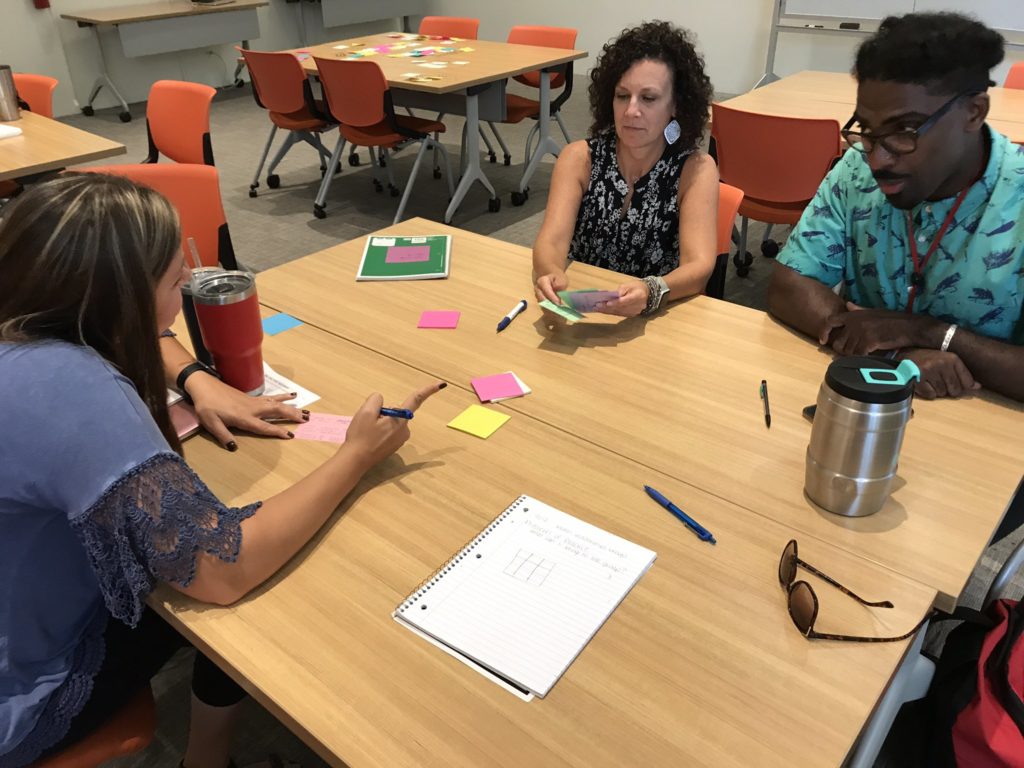
Leadership comes in many shapes and sizes. At its very core, all educators are leaders because they are leading the teaching and learning in their spaces. One can lead from the classroom, just as one can lead beyond the classroom. Leadership beyond the classroom can manifest itself in the role of a grade level leader, a content area leader, an instructional coach, or as a building level or district level administrator. Beyond that, one can be a leader without having a defined role. Leaders understand that learning is an ongoing process. Leaders believe mistakes will be made and work to understand why as they strive to implement effective change.
Leaders are vulnerable. They realize they simply do not know everything, and they believe they can lean on others to learn more. Leaders provide multiple opportunities to share what they have learned. This can take many forms. A leader might engage in a conversation in the teachers lounge; write an excerpt in the weekly staff newsletter; take a risk and try something new in the classroom; share with grade level team members; infuse what has been learned during a PLC; or lead a planned PD.
Leadership changes from district to district and building to building. Leaders understand decisions they make must be made for their students and teachers. Leaders understand there is no best way to lead.
The Partnership for Inquiry Learning’s Leadership Groups work to elevate educators’ willingness to lead by building on each individual’s strengths. Membership in one of the Partnership’s Leadership Groups should be seen as more than professional development. Participation in a leadership group should inspire educators to make change at the classroom level, the school level, and beyond.
We are currently living and working in unprecedented times. We may feel pressure to revert to classical teaching and learning practices; or, we could utilize this unique moment to leverage our leadership skills in an effort to innovate as we examine our pedagogical practices. Now is the time to empower all students and teachers to lead in the classroom and beyond. We must use our leadership capacity to create experiences that make this possibility a reality.

This year’s Mathematics Leadership group will focus on problems of practice in mathematics classrooms. Each month, we will explore common issues faced by educators as they work with young mathematicians. After learning several ways to reflect on our practice, we’ll begin looking at our own dilemmas. Tapping into the community that we build throughout the year, we will use our own mathematical experiences, expertise, and resources as we think about continually improving our teaching practices.
Tentative meeting dates (all virtual) at 4:00-6:00 PM
